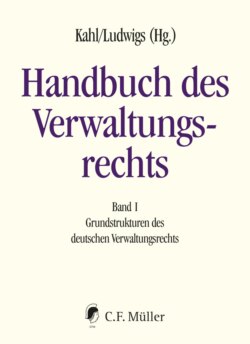| 1. | The doctrine of legal sources concerns the validity and the basis for the validity of the law (par. 1). Law in this context means positive law, namely the totality of all legal norms applicable within a legal system. There is no specific doctrine of legal sources in administrative law. However, the doctrines of legal sources of different legal fields have different focuses. In administrative law, these are the general principles of administrative law and the classification of administrative regulations (par. 6). What is recognised as law is determined by the legal system itself. |
| 2. | Another central function of the doctrine of legal sources is to classify the applicable legal norms into different legal spheres (international law, European law, federal law, state law, municipal and functional self-administration, internal regulation, etc.) (par. 17) and within the legal hierarchy of law (constitution, primary law, secondary law, ordinance, statute, tertiary law) (par. 33 et seqq.). |
| 3. | The differentiation of a legal system into different legal spheres makes it possible to establish the authority responsible for setting norms either at a centralised or decentralised level, depending on the subject matter concerned. This creates space for democratic self-determination, but can also be legitimate from a competitive perspective. One must differentiate between written (par. 43 et seqq.) and unwritten sources of law (par. 57 et seqq.). In the case of written sources of law, a distinction can be drawn between a constitutional level (par. 44), a parliamentary-governmental level (par. 45 et seq.), and the law established by the executive branch (par. 48 et seqq.). |
| 4. | The constitutional level is characterised by a particularly high degree of democratic legitimacy, which is secured by qualified majority requirements and, in part, by polls (par. 44). The parliamentary-governmental level of law is subordinate to the constitution. Because of its transparency and the involvement of the government, the parliamentary procedure offers a strong guarantee of a comprehensive balance of interests between parliament and the public (par. 45 et seqq.). The level of executive legislation is based on a number of fundamental principies (par. 48 et seqq.). In some cases, it involves the regulation of detailed issues (ordinances, tertiary law), while in others, it relates to the scope for autonomous regulation of the concerned parties’ own affairs (bylaws of municipal and functional self-administration). Administrative regulations allow for the internal control of the administration, referring to the way in which tasks are performed. Despite their lack of external validity, these regulations are of considerable practical importance for enforcement in practise (par. 52). Legal authorisation is only required in the case of administrative regulations that specify statutory rules (normkonkretisierende Verwaltungsvorschriften) (par. 54). |
| 5. | The unwritten sources of law include customary law, general legal principles and case law. Case law is not strictly binding (par. 61). The unwritten law allows for flexible adaptation to new legal issues. By contrast, its democratic legitimacy is weak (par. 57). |
| 6. | The third object of the doctrine of legal sources is the resolution of contradictions within the law (par. 18). In addition to the primacy of law, other patterns of concordance have been established. These include the priority of application as well as the interpretation and further development of the lower-ranking legal norms in accordance with those of higher rank (par. 86 et seqq.). In polycentric legal orders, the legitimacy of one legal sphere is no longer derived from the legislation of another legal sphere, and therefore, conflicts of law are not always resolved (par. 93). |
| 7. | Parliamentary-governmental legislation has become less important at the level of the national state as a result of internationalisation, Europeanisation, constitutionalisation and the drafting of laws through private entities (par. 20 et seqq.). |
